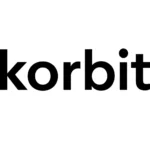South Korea completed its largest-ever euro-denominated debt offering Thursday, raising €1.4 billion ($1.6 billion) through a dual-tranche structure that generated exceptional investor appetite just weeks after President Lee Jae-myung took office.
The sovereign attracted €19 billion in demand across both tranches, representing 13.6 times the issue size and marking the highest subscription rate for any Korean euro-denominated debt offering. The overwhelming response reflects renewed confidence in Asia’s fourth-largest economy following months of political turbulence that culminated in former President Yoon Suk Yeol’s impeachment.
The issuance comprised €700 million in three-year notes priced at 25 basis points over mid-swaps and €700 million in seven-year bonds at 52 basis points over the benchmark. These spreads came in tighter than comparable Japanese state financial institutions and Chinese sovereign debt trading in secondary markets, according to the Ministry of Economy and Finance.
The transaction represents South Korea’s return to euro markets after a four-year absence and its largest foreign currency bond sale since raising $1 billion in 2014. The timing proves strategic, with €700 million in Korean sovereign bonds maturing in September and an additional $400 million due in November.
Lee’s election victory in June’s snap election helped ease political uncertainty that had gripped the country since Yoon’s martial law declaration in December. During roadshows in London and online conferences this week, global investors expressed confidence in the economic outlook despite external headwinds including potential U.S. trade tensions.
The Finance Ministry cited the need to “strengthen foreign currency reserves at a timely moment” while securing refinancing for maturing obligations. Under parliamentary authorization, South Korea maintains approximately $1.9 billion in remaining offshore bond quota from a $3.5 billion ceiling approved for 2025.
Goldman Sachs, HSBC, JPMorgan, Crédit Agricole, and KB Securities managed the transaction. The successful pricing establishes a new benchmark for Korean corporate issuers seeking offshore funding and signals restored market access following the political transition.




